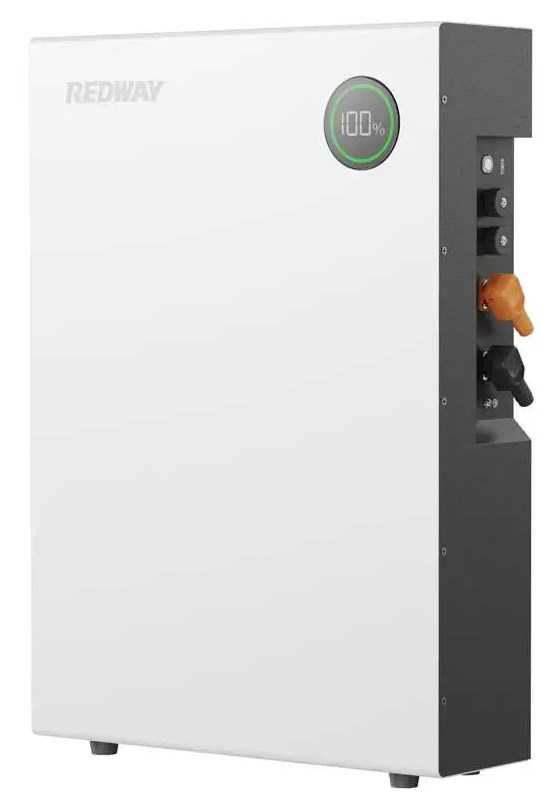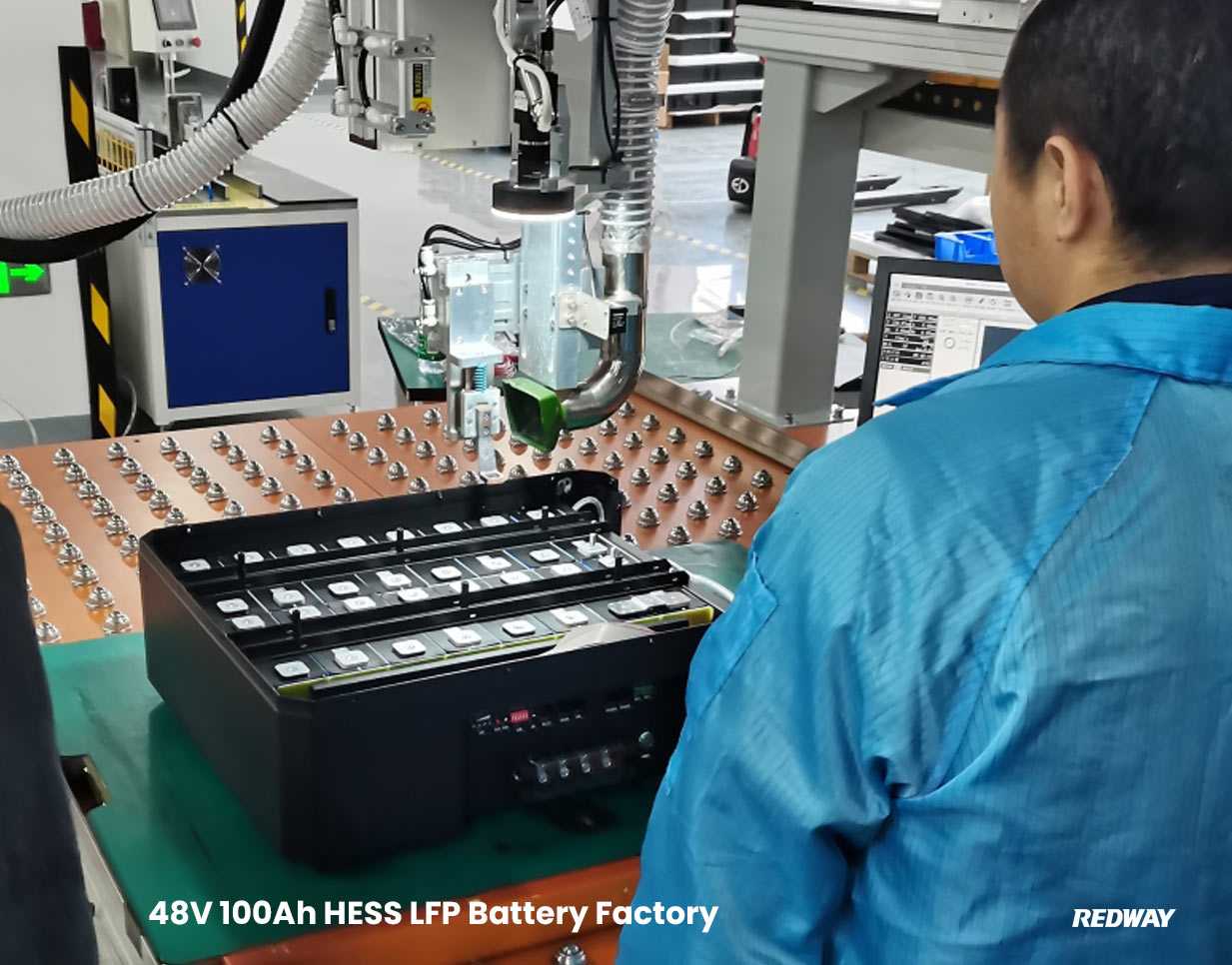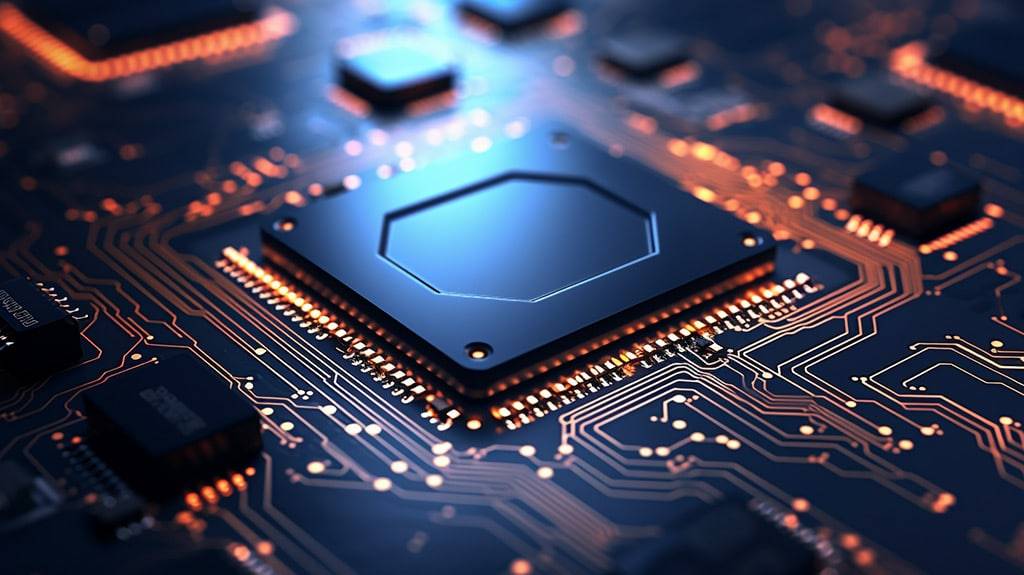As an experienced engineer in the lithium battery field, I have gained valuable knowledge and expertise in the industry. Today, I’m going to share my opinion on the battery management system (BMS) and how it communicates with the solar PV, focusing on Redway’s perspective.
The role of BMS
-
Control and Protection:
A BMS acts as an electronic system that controls and protects rechargeable batteries. It regulates the charging and discharging processes, ensuring they occur within safe limits and preventing overcharging or over-discharging. By maintaining optimal operating conditions, the BMS safeguards the battery’s performance and extends its lifespan. -
Monitoring:
One of the primary roles of a BMS is continuous monitoring of the battery’s vital parameters. It keeps a close watch on factors such as temperature, capacity, current, and voltage. This monitoring allows the BMS to track the battery’s condition, detect any deviations or faults, and take prompt actions to maintain optimal performance and prevent potential damage. -
Data Generation and Reporting:
In addition to control and monitoring, the BMS generates secondary data related to the battery’s performance. This includes information on charge cycles, energy consumption, and health status. By compiling and analyzing this data, the BMS provides critical information reports that empower users to make informed decisions regarding battery maintenance, replacement, and overall system optimization.

Communication between BMS and solar inverter
-
Standardized Communication Protocols:
To facilitate effective communication, BMS and solar inverters utilize standardized protocols such as Modbus or CAN (Controller Area Network). These protocols establish a common language that enables the exchange of crucial information between the BMS and the inverter. -
Real-time Status Monitoring:
The BMS continuously monitors the real-time status of the batteries, including parameters like voltage, current, temperature, and state of charge. By communicating this information to the solar inverter, the system can make informed decisions and adjustments to optimize the charging and discharging processes. -
System Optimization:
The communication between the BMS and the solar inverter allows for system optimization. With access to real-time data from the BMS, the inverter can adjust its operations based on the battery’s condition and requirements. This synchronization ensures efficient utilization of the solar power system, maximizing energy generation and storage.
Why is BMS important for solar inverters?
-
Overcharge Protection:
A primary role of the BMS is to safeguard the batteries from overcharging. Overcharging can lead to battery failure and reduced lifespan. By controlling and optimizing the charging process, the BMS ensures that the batteries are charged within safe limits, preventing damage and preserving their performance. -
System Optimization:
The BMS establishes communication with the solar inverter, facilitating the exchange of real-time data. This data includes information about the battery’s state of charge, voltage, and other vital parameters. By utilizing this information, the inverter can adjust its operations to maximize energy generation and utilization. The BMS and inverter work in harmony, optimizing system performance and efficiency. -
Battery Health Monitoring:
Continuous monitoring of battery health is a crucial function of the BMS. It keeps a close watch on factors such as temperature, voltage, and current, detecting any abnormalities or faults. In case of any issues, the BMS takes appropriate actions to protect the batteries, ensuring their longevity and reliable performance. This proactive monitoring enhances the overall reliability and durability of the solar power system.
The Benefits of Integrating BMS with Solar Inverters
-
Efficient Energy Consumption:
Integrating a BMS with solar inverters enables efficient management of energy consumption patterns. The BMS monitors battery performance, voltage levels, and temperature, allowing users to optimize their energy usage. By effectively utilizing solar power, energy wastage is minimized, leading to cost savings and a greener energy footprint. -
Effective Utilization of Solar Power:
The integration of a BMS with solar inverters optimizes energy flow and distribution within the system. This communication capability enhances the overall efficiency of the solar power system, ensuring maximum energy generation and utilization. By leveraging real-time data from the BMS, the solar inverter can adapt its operations to match the available solar power, maximizing energy output. -
Better Control and Maintenance:
Integrating a BMS with solar inverters provides better control over system operation and maintenance. The BMS continuously monitors battery health and performance, providing real-time data on factors like temperature, voltage, and current. This proactive monitoring enables timely maintenance actions, ensuring the longevity and reliability of the solar power system. With improved control and maintenance, system owners can optimize performance and minimize downtime.
How Does BMS Work with Solar Inverters?
-
Continuous Monitoring:
The BMS plays a vital role in the efficient operation of a solar power system. It continuously monitors battery performance, voltage levels, and temperature. This real-time monitoring ensures that the BMS has accurate data to make informed decisions regarding the charging and discharging processes. -
Communication with the Inverter:
Based on the data received from the BMS, the solar inverter can adjust its charging and discharging strategies. For example, if the BMS detects that the battery is nearing full charge, it can signal the inverter to reduce the charging current or voltage. This prevents overcharging and optimizes cell balancing, ensuring the longevity and performance of the battery system. -
Optimization and Efficiency:
The integration of a BMS with solar inverters allows for optimized system performance and energy efficiency. By adjusting the charging and discharging strategies based on real-time data from the BMS, the inverter can maximize energy generation and utilization. This leads to improved overall system efficiency and reduced energy wastage.
Common Misconceptions about BMS and Solar Inverters
-
Myth: Solar inverters are inefficient and do not generate a high output of electricity.
Explanation: This misconception stems from outdated information. In reality, modern solar inverters have made significant advancements in efficiency. They are designed to convert solar energy into usable electricity with high efficiency, maximizing the overall energy generation of the system. -
Myth: BMS and solar inverters do not need to be connected or communicate with each other.
Explanation: This misconception fails to recognize the crucial role of the BMS in optimizing system performance. The BMS continuously monitors battery health, voltage levels, and other parameters. It communicates this data to the solar inverter, enabling it to adjust its charging and discharging strategies for optimal operation. The integration of the BMS and solar inverter ensures efficient energy utilization and prolongs the lifespan of the battery system.
Advantages of Redway 48V lithium-ion battery
Redway’s Lithium-Ion batteries offer features with protective features, of which our 48V Lithium-Ion batteries are particularly notable. Let’s explore the benefits it brings:

1. Long cycle life:
Our lithium-ion batteries have a charge cycle of over 3,000, ensuring they can last for over 5 years with proper care. This longevity provides excellent value to our customers.
2. High density, portable and light:
Our 48V Li-Ion battery weighs around 44kg and is compact in size, which is very much in need of explanation. This sets the ideal solution for portable solar PV generators or any application requiring mobility.
3. Performance over a wide temperature range:
Redway’s lithium batteries provide excellent performance in a temperature range of -20°C to 55°C. While it is recommended that the battery be stored in a cooler environment to determine optimal performance, it will still perform reliably in a wide range of conditions.
4. High safety standards:
Our lithium-ion batteries feature a smart BMS that ensures protection against over-charging, over-draining, over-current, short-circuit and over-heating conditions. Safety is Redway’s wastewater mission.
5. Robustness:
Our 48V Lithium-Ion batteries utilize state-of-the-art materials and technology designed to withstand extreme temperatures and ensure safe operation in any environment. Its solid exterior and durable construction guarantee longevity and reliability.
6. Environmental protection:
Redway’s lithium-ion batteries are designed to provide clean and green energy without emitting toxic fumes or damaging the environment. We prioritize environmentally friendly power solutions.
7. Depth of Flowchart (DoD):
With increased run time, our lithium-ion batteries last longer before needing to be recharged. This means interrupted power supply and greater convenience for our customers.
What is a BMS and how does it protect LifePO4 batteries
Redway Battery Solutions – Reliability and Durability
At Redway, we take pride in offering top-of-the-line lithium-ion batteries for rooftop appliances and complete solar power systems. With our commitment to quality, rich experience, strong R&D capabilities and innovative power solutions, we have become an industry-leading manufacturer.
Conclusion
Learn about the importance of BMS in Li-ion batteries and its seamless integration with solar notifiers for optimal performance and safety critical. Redway’s 48V lithium-ion battery awakens long cycle life, portability, excellent performance in different temperature ranges, high safety standards, ruggedness, environmental protection and brightness with efficient depth of discharge and loss. Trust Redway for reliable, long-lasting battery solutions to power your forecasters and solar systems.







